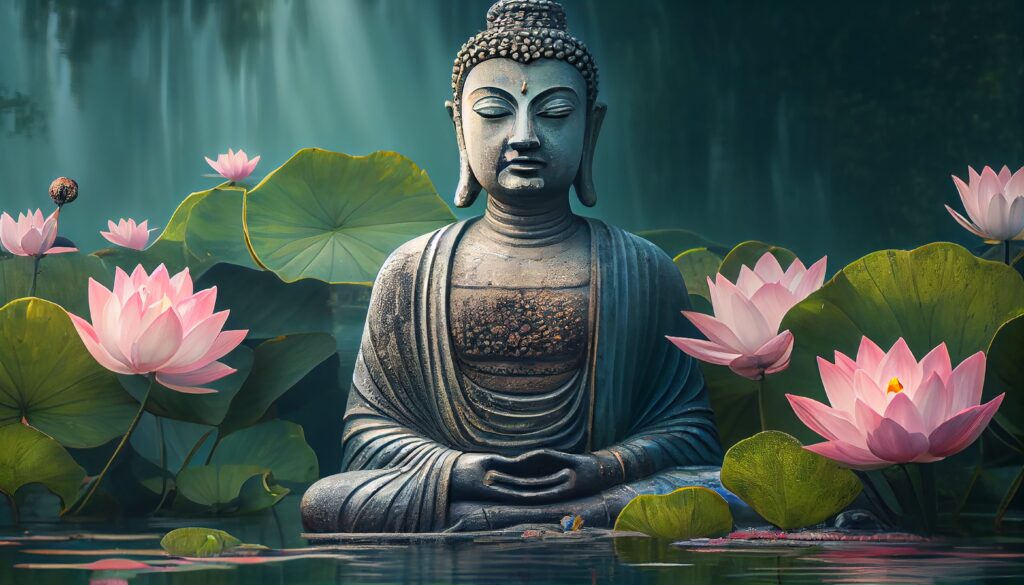In the diverse cultural tapestry of India, the festival of Guru Purnima holds a special place. Celebrated with immense fervor and reverence, Guru Purnima is a time when the nation pays homage to the revered gurus who have illuminated the paths of countless seekers. This blog explores the vibrant celebrations of Guru Purnima in India, highlighting the customs, traditions, and profound significance of this auspicious occasion.
Spiritual Retreats and Ashram Visits
Guru Purnima is marked by a deep spiritual fervor, with thousands of devotees flocking to ashrams and spiritual retreats across the country. Seekers of wisdom and knowledge embark on pilgrimages to be in the presence of renowned spiritual leaders, gurus, and saints. The atmosphere in these sacred spaces is filled with devotion, contemplation, and the exchange of profound teachings.
Guru Puja and Homage
Guru Purnima is a day dedicated to expressing gratitude and reverence towards gurus. Devotees participate in special puja ceremonies, offering flowers, incense, and other sacred items at the feet of their gurus. It is a time for disciples to seek blessings, guidance, and spiritual nourishment from their revered teachers. The guru’s role as a spiritual guide and mentor is celebrated, acknowledging their invaluable contribution to the spiritual evolution of their disciples.
Cultural Programs and Discourses
Guru Purnima is not only a religious occasion but also a cultural celebration. Various cultural programs, including music and dance performances, poetry recitals, and theatrical productions, are organized to pay tribute to gurus and their teachings. Additionally, discourses and lectures by eminent spiritual leaders are held, offering profound insights and wisdom to the gathering. These events provide an enriching platform for the exchange of ideas and the celebration of spiritual and intellectual heritage.
Guru Dakshina
Guru Dakshina, an age-old tradition, holds deep significance for Guru Purnima. Disciples express their gratitude by offering Guru Dakshina, which can take the form of monetary contributions, service, or any form of selfless offering to the guru. This act symbolizes the disciple’s commitment, humility, and willingness to learn from their teacher.
Fasting and Self-reflection
Some devotees observe a day-long fast on Guru Purnima as a mark of their dedication and reverence. Fasting is considered a spiritual practice that helps purify the mind and body, enabling individuals to deepen their spiritual connection and focus on self-reflection. It is a time for introspection, contemplation, and reaffirming one’s commitment to the path of knowledge and enlightenment.
Guru Shishya Parampara
Guru Purnima emphasizes the sacred bond between the guru (teacher) and shishya (disciple). The Guru Shishya Parampara (teacher-student tradition) is deeply ingrained in Indian culture, where the transfer of knowledge and wisdom occurs through a lineage of gurus and disciples. Guru Purnima serves as a reminder of the eternal significance of this bond and encourages the preservation and continuation of this sacred tradition.
Conclusion
Guru Purnima celebrations in India are a testament to the country’s rich spiritual heritage and the profound respect for the guru-disciple relationship. It is a day of deep reverence, gratitude, and self-reflection, where seekers come together to honor the gurus who have bestowed knowledge, wisdom, and spiritual guidance upon them. These celebrations not only strengthen the connection between teachers and students but also foster a sense of unity and devotion in the community. As India embraces the spirit of Guru Purnima, it reaffirms its commitment to the pursuit of knowledge, spiritual growth, and the preservation of ancient wisdom.
Guru Purnima celebrations in India go beyond religious boundaries, with people from various faiths and backgrounds coming together to pay homage to their teachers. It is a unifying occasion that transcends differences and emphasizes the universal importance of learning, enlightenment, and the eternal quest for truth.
As we celebrate Guru Purnima in India, it is a time for introspection and renewal. It is an opportunity to reflect on the teachings we have received, the impact our gurus have had on our lives, and the responsibility we hold as torchbearers of wisdom for future generations. It is a reminder to not only seek knowledge but also to embody it in our thoughts, words, and actions.
Furthermore, Guru Purnima celebrations inspire us to become better students of life. They encourage us to be receptive, humble, and open-minded, embracing the wisdom that flows from the divine teacher-student bond. It is a time to cultivate a thirst for knowledge, expand our horizons, and deepen our spiritual practices.
Beyond the festivities and rituals, Guru Purnima serves as a reminder of the essential role of gurus in society. They play a vital part in shaping individuals, communities, and nations by imparting knowledge, values, and spiritual guidance. Their teachings transcend academia and encompass all aspects of life, promoting love, compassion, selflessness, and inner transformation.
In conclusion, Guru Purnima celebrations in India are a beautiful tapestry of reverence, gratitude, and spiritual growth. They symbolize the timeless relationship between gurus and disciples, fostering a sense of unity, respect, and devotion. As we honor our teachers on this sacred day, let us embrace the teachings we have received and commit ourselves to become lifelong learners, spreading the light of knowledge and compassion in the world.
May the celebrations of Guru Purnima in India continue to inspire generations to come, nurturing the divine connection between gurus and their disciples, and fostering a society rooted in wisdom, enlightenment, and spiritual harmony.





